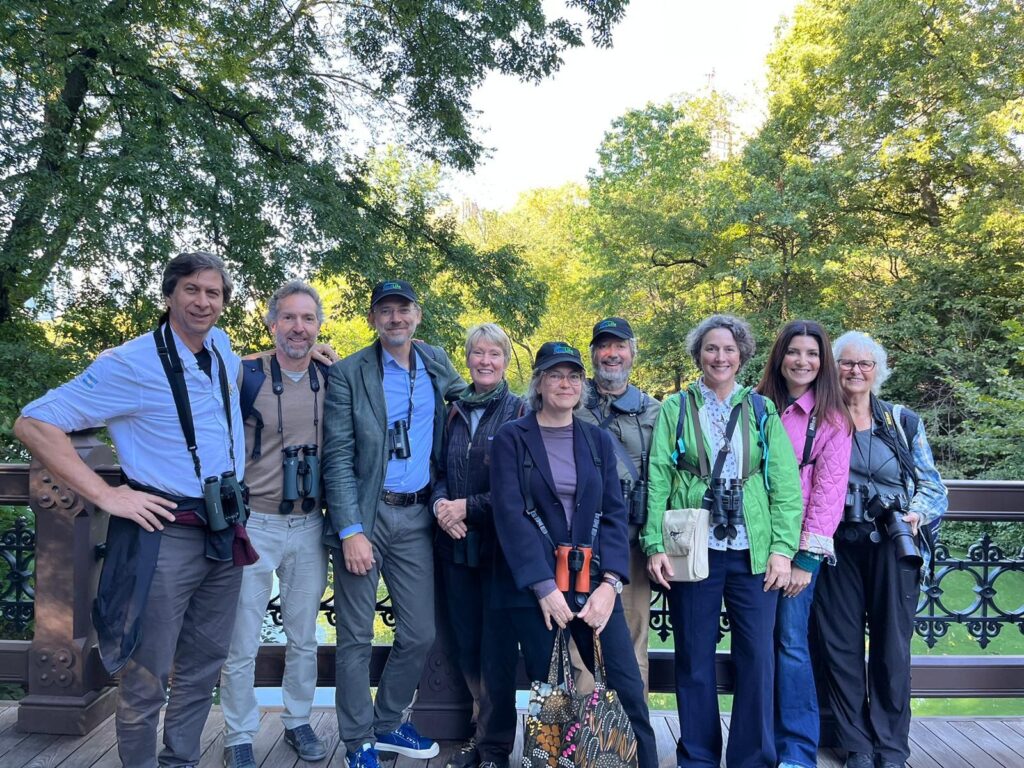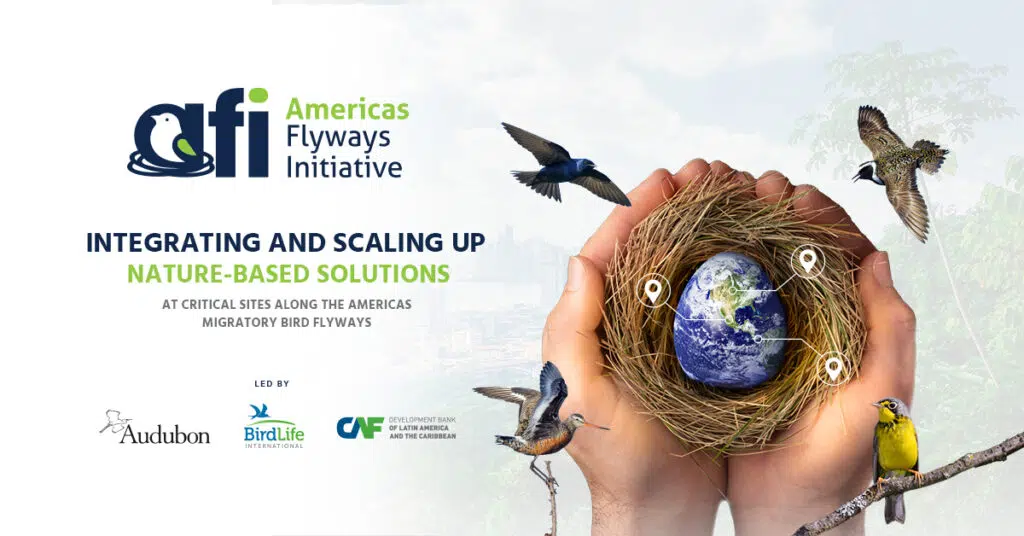New York Climate Week: Progress or Greenwash?

Martin Harper, BirdLife's Interim CEO, joined our North America team and BirdLife Partners at New York Climate Week which was organised alongside the 78th meeting of the United Nations General Assembly. However, were the outcomes genuine advances for nature or merely greenwash?
By Martin Harper
Cover Image: Aurelio Ramos and Elizabeth Gray (Audubon) and Alicia Montalvo (CAF) with Martin Harper
In New York last week, ministers from around the world made statements outlining their environmental commitments. While listening, I texted BirdLife partners to share what their representatives were saying and it was fascinating to read their responses; some were delighted, while others were hugely sceptical given the reality of what was happening at home. In the case of the UK, while the Environment Minister was talking up the UK Government’s plans in New York, more than 400 hundred business and civil society organisations (including our UK Partner, the RSPB) were coming together. As one, they shared an open letter outlining “deep concerns” at Prime Minister Sunak’s plan to weaken net zero policies.
So, it’s sometimes hard to work out whether progress is being made or whether we are being subjected to greenwashing. Some clearly felt the latter, which is why 75,000 people took to the streets of New York City marching to #EndFossilFuels.
“Progress is the not the accomplishment of the mission”
Prime Minister of Barbados, Mia Mottley
Our aim of attending New York Climate Week, as well as showcasing some of our pioneering conservation work, was to urge governments to move on from ambition to action. Climate change commitments intensified last November, the Global Biodiversity Framework (GBF) had been agreed just before Christmas while the new UN High Seas Treaty (designed to protect biodiversity beyond national jurisdictions) was adopted in June. All of these were welcome, but we arrived in New York desperate to see tangible evidence of new money, laws and policies designed to take these commitments forward.
While it is impossible to keep up with everything that happened, here are some of the highlights:
- The publication of recommendations from the Taskforce on Nature-related Financial Disclosures (TNFD) to help companies report on and act for nature.
- More than 80 countries have signed the High Seas Treaty. The next step will be ratification by at least 60 governments to ensure that the Treaty can come into force, then begin to identify and manage marine protected areas outside of national waters.
- At the UN Climate Ambition Summit, there were renewed commitments on finance and ambition to triple renewable energy capacity in a decade.
- A new financial commitment made by Germany (adding to Canada and UK commitments) meant that the planned $200m GBF Fund will now become operational.
- A conference has been planned in 2024 to work on GBF Target 18, to discuss reforming subsidies that provide funds for intensive agriculture, fisheries and fossil fuels, which cause trillions of dollars of harm through pollution and the destruction of nature.

With the biodiversity funding gap remaining at nearly $600 billion a year, we clearly need a different approach. This is why we are so excited to be working with the Asian Development Bank and Development Bank for Latin America and Caribbean (CAF) to drive investment in site protection and restoration through the East Asian Australasian and Americas flyways.
Americas Flyway Initiative does these things and we hope that it inspires similarly ambitious action from others.
Despite greenwashing from some, my sense is that progress is being made; nature is now in the room – in these discussions and increasingly in boardrooms and cabinet meetings. But, as the Prime Minister of Barbados, Mia Mottley, said last week: “progress is the not the accomplishment of the mission”. There is still a huge amount of work to do … and BirdLife will continue to do whatever it takes and whatever nature needs.
